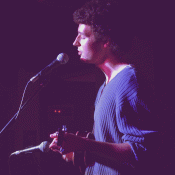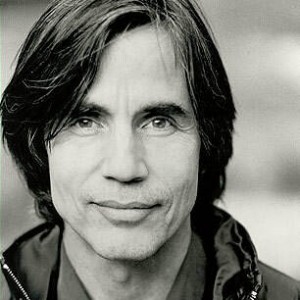Writing on the road (and in the continuum)

Writing on the road (and in the continuum)
A weekly column by Inside Songwriting contributor, Michael J Roberts.
“Well I been out walkin’,
I don’t do too much talkin’ these days”
~ Jackson Browne (These Days)
The road for many a songwriter will prove to be a long and winding one, but one of our friends at Inside Songwriting has taken the call literally and struck out on his own, driving around Australia in a van for an unspecified period of months. Kieran Taylor, a young and talented songwriter has taken the brave step of leaving his job, his family and friends and hitting the road armed with a guitar, his ambition and a spirit of discovery. It reminds me somewhat of my journey, when I left my home in Tasmania, drove to Sydney in search of a life in music, and built a home and career from scratch. I travelled with my girlfriend Dianne, now my darling wife of many years, but we had no jobs and knew no-one, and life was wide open. It also resonates with the story from my Inside Songwriting compadre Karl Broadie, who left his native Scotland to become a hard core Southern Hemisphere troubadour at a similar age, so we both follow his journey with high interest and support Kieran in his endeavours.
Kieran has struck out at a pivotal point in his artistic development, and has come face to face with rule number one. Rule number one for any writer is “write what you know”, and with good reason, people can sniff out a fake. If any writer is to achieve the much desired and elusive ‘authentic’ tone, then it’s most likely going to come from a place of truth. The corollary to this maxim is therefore, if you don’t ‘know’ anything, you better get to a point where you do, and to do this you need to actively seek out experience to fuel the muse. Upping stumps and hitting the road without a map, but with a vague sense of direction is certainly one approach to gain experience, and it’s probably the case that the kind of life lessons learned by doing that will stay with any writer for the rest of their lives. The benefits may not come quickly, they may filter through in a deeper understanding of the process rather than result in a pre-Cambrian explosion of creativity and output, but either way there will be fuel to fire the imagination and stoke the writing fire. Any writer finding his voice, by whatever methodology is writing in a tradition and continuum of those that have gone before, and looking at a few examples demonstrates that there are many ways up the mountain Grasshopper.
An early bloomer late for the sky.
Reading an article on Jackson Browne recently he had some key things to say about writing, and specifically about the environment a writer is immersed in and how it influences their work. Speaking of the importance of authenticity at the defining moments of the 1970’s Singer-Songwriter zeitgeist, Browne said “You couldn’t be glib about what you wrote, it had to cost you something,” in other words it had to be informed by experience. What experiences would inform his work, then a feted young buck with the world at his feet mixing in the heady atmosphere of the Laurel Canyon crowd? Not surprisingly his work from that time is almost solely tied up in emotionalism, i.e, falling in and out of love, issues of trust and vulnerability, keeping in mind that he wrote the astonishing ballad These Days, when he was 16 years old! Browne moved out of the domain of matters of the heart in later years, as maturity from early fatherhood and from a widening political perspective gave him wider fuel from which to draw on.
“Turn off your mind, relax and float downstream”
~ Lennon/McCartney (Tomorrow Never Knows)
Experiencing a variety of differing ‘inputs’ is always a way to gather fuel for the creative process, and keeping an open mind is key in this regard. No-one would have expected two Northern England working to middle class lads, raised on raucous rock and roll, to embrace avant-garde music and art and take their music in a revolutionary direction, but that’s exactly what Lennon and McCartney did in the Sixties. Thrust into the centre of London these two provincial lads had completely different reactions to the sudden fame and acclamation they enjoyed, Lennon essentially retreated into himself and a built a wall of drugs and isolation, whereas McCartney embraced the big city and revelled in its possibilities. McCartney gained access to high culture via the family of his girlfriend, actress Jane Asher, and attended classical music concerts and art gallery exhibits, discovering the art and music of artists he would never have hear of in the streets of Liverpool.
McCartney absorbed the Musique Concrete of Stockhausen and the minimalism of John Cage, and set about bringing sound collage and experimental techniques to the biggest mainstream band on the planet. Soon he was thinking in terms of musical structure and composition in ways that would provide the Beatles with groundbreaking songs like Eleanor Rigby, or She’s Leaving Home, or suggesting a piccolo trumpet for Penny Lane because he’d heard it the night before in a Bach Concerto by the LSO. The band started using tapes and produced an astounding run of cutting edge output, and outside of epics like Strawberry Fields Forever and I Am The Walrus, McCartney and Lennon produced an epic experimental collaboration called Carnival of Light, still yet to be released. Macca also got into art, championing the Indica gallery, well before John met Yoko there, and developing a taste for the surreal and a passion for Magritte. The Apple Records logo was based on a Magritte image and years later his wife Linda bought him the Belgian artist’s easel for a present.
When John emerged from his drug funk, on the back of an accidental clean up (as a result of the scarcity of drugs in India, where he spent two months with the Maharishi), he too embraced the avant-garde, specifically in the form of the diminutive Japanese artist Yoko Ono. Yoko was attached to the Fluxus movement and eventually their ethos would inform Lennon’s artistic mantra, to the exclusion of all others. Essentially they maintained that for an artist to be truthful the artist must make their own life the centre of their work, i.e. the line between the artist and the art should be destroyed. In lesser hands this is a disastrous recipe for self-indulgence, but in the hands of a genius greatness can result. John immediately took the ethos to heart “The Ballad of John and Yoko” anyone? … and from there his own life and events formed the spine of his artistic legacy. From the pain of Primal Scream therapy, resulting in the brutal and spare Plastic Ono Band album, to the blissful days of peace and fatherhood in the Dakota with his new son, Watching The Wheels, Beautiful Boy, et al, Lennon would chronicle his own experiences, which also included a remarkable period of political activism and migration to New York.
Most of the all time greats have taken unexpected career turns in order to feed their creative appetite. Dylan took art classes, Paul Simon studied composition at Columbia, Joni went to live in a cave on a Greek island and Steve Earle went to prison!
Many roads, One path – Inspiration versus hard work
We can conclude that chasing inspiration can take many guises, but if inspiration were so easy to come by then every songwriter would be writing classic songs every time, so there’s obviously another side to this story. Two writers that many may take to be modern poets, and therefore more likely to be proponents of the “I write when the muse strikes man” school are Leonard Cohen and Nick Cave. It’s salient to learn that both are eloquent advocates of the merits of hard work, indeed, Nick Cave clocks in to his office during office hours to write, such is his habit and discipline.
Cave is something of a paradox who embraces the duality of songwriting, on one side he speaks beautifully about its mystical or transcendent dimension, vis “There’s an element to songwriting that I can’t explain, that comes from somewhere else. I can’t explain that dividing line between nothing and something that happens within a song, where you have absolutely nothing, and then suddenly you have something. It’s like the origin of the universe.” He then has a pragmatic side too that admits the prosaic side of art and work and the need to front up with the will to produce something even in the absence of overt inspiration, “Inspiration’ is a word used by people who aren’t really doing anything….. Most people wait for the muse to turn up. That’s terribly unreliable. I have to sit down and pursue the muse by attempting to work.”
Leonard Cohen went to live in a monastery after his initial brash with fame, backing away from the celebrity aspect of his (to him) distasteful notoriety. Cohen fell back into the habits of painters and artists who continually stare at a blank canvas and force themselves to come up with something creative, no matter how or where. He opines,
“But why shouldn’t my work be hard? Almost everybody’s work is hard. One is distracted by this notion that there is such a thing as inspiration, that it comes fast and easy. And some people are graced by that style. I’m not. So I have to work as hard as any stiff, to come up with my payload. Freedom and restriction are just luxurious terms to one who is locked in a dungeon in the tower of song. These are just … ideas. I don’t have the sense of restriction or freedom. I just have the sense of work. I have the sense of hard labour.”
So, as Kieran is on the road searching for inspiration and experience we wish him well, not many are as brave and my guess is no matter when or how it ends he’ll come back wiser and more mature, and that can only be good fuel for any writer.
Happy trails pal, and happy writing to all.
Musycks
RELATED POSTS / LINKS:
Musycks Musings & Topical Tips Home



